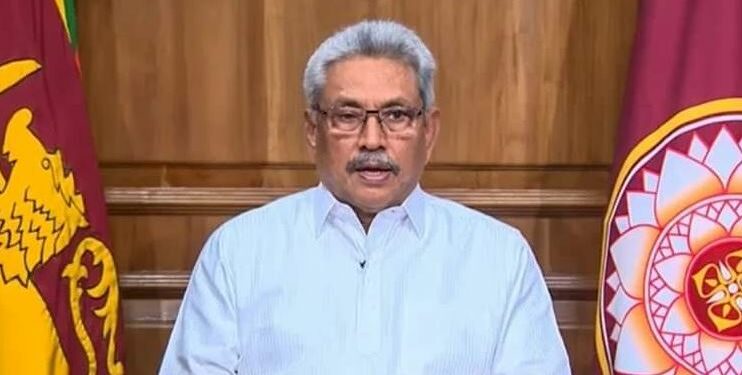
Rajapaksa's ruling coalition loses majority; new finance minister resigns

Sri Lanka’s President Gotabaya Rajapaksa’s ruling coalition lost its majority in the 225-member parliament on Tuesday (April 5) after at least 41 lawmakers walked out of the alliance amid growing unrest over an economic crisis, said news reports.
“Our party is on the side of the people,” said Maithripala Sirisena, leader of the Sri Lanka Freedom Party which withdrew its support for Rajapaksa’s coalition.
Even as Sri Lanka’s parliament convened on Tuesday in its first session since a state of emergency was imposed against the backdrop of growing public ire, president Gotabaya Rajapaksa clung to power refusing to resign. However, the president’s ruling coalition was clearly in deep trouble, as dissident parliamentarians, under the leadership of former president Maithripala Sirisena, had threatened to break away from the government, as the country continued to reel under its worst economic crisis.
Newly-appointed finance minister Ali Sabry too resigned from his post. Sabry said in his resignation letter that he took up the job as part of a temporary measure. “However, after much reflection and deliberation and taking into consideration the current situation, I am now of the view for Your Excellency to make suitable interim arrangement to navigate the unprecedented crisis, fresh and proactive, and unconventional steps need to be taken, including the appointment of a new finance minister,” Sabry wrote in his letter.
He was among the four new ministers appointed by President Rajapaksa on Monday.
Newly-appointed FM of Sri Lanka, Ali Sabry resigns from his post
“After much reflection&deliberation&taking into consideration the current situation I’m now of the view, for your Excellency to make suitable interim arrangement to navigate this unprecedented crisis,” reads letter pic.twitter.com/HIPbRibZ3D
— ANI (@ANI) April 5, 2022
In the past few days, amid a growing demand in Sri Lanka for the president’s resignation, angry demonstrators had stormed the houses of many government politicians, including Prime Minister Mahinda Rajapaksa’s country house. The pent-up anger is due the fact that Sri Lankans have to contend with standing in long lines for fuel, cooking gas, and essentials which are in short supply and having to suffer long hours of power cuts.
According to experts, the lack of dollar reserves and depreciation had forced an economic crisis in the island nation and led to these severe shortages. Meanwhile, medical authorities in Sri Lanka have declared a health emergency in the country.
Also read: Lankan crisis: Protests on; Rajapaksa pitches for all-party govt
Seeking a majority in Sri Lankan parliament
The president’s Sri Lanka Podujana Peramuna (SLPP) was all set to hold onto its 113 seats, to be able to continue in the government even with a simple majority, which would have enabled Mahinda Rajpaksa to continue as the PM. Media reports had said that if the government failed to get majority in the parliament, the speaker would call for a debate to see who would be the new PM and as president Gotabaya Rajapaksa had decided, the government will be handed over to the new party.
The Sri Lankan president had agreed to hand over the government to whichever party holds 113 seats in the Sri Lankan parliament, if the ruling coalition failed to muster up the numbers.
Meanwhile, the Sri Lanka Freedom Party (SLFP), the main coalition partner had already declared that 14 lawmakers will withdraw support to this government. Udaya Gammanpila, a dissident lawmaker had told reporters on Monday that the coalition, which commanded 157 votes out of 225 at the last vote held on the government budget, was bound to lose between 50-60 members.
As a result, the government would not be able to garner a simple majority of 113 members, he added. According to the dissidents, 16 more from the other 11 members of the coalition would defect to be an independent group. They had expected at least 20 from the SLPP to join their ranks.
President Rajapaksa who defended his government saying the foreign exchange crisis was not his making and the economic downturn was largely pandemic driven with the island nation’s tourism revenue and inward remittances waning, had sacked his brother and finance minister Basil Rajapaksa a day before from his post to assuage public ire.
He then invited the Opposition parties to join a unity Cabinet to tackle the demonstrations by the people severely hit by the economic crisis. The Opposition parties however rejected the offer.


